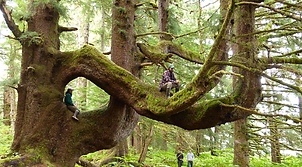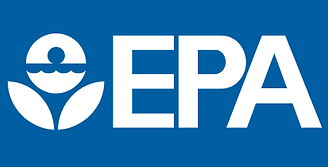
Patient & Planet
The Quest for Physical, Mental and Planetary Health
In Other News
Important and interesting information...

July 2024
Outdoor Workers at Heat Risk

Outdoor workers are at increasingly high risk for problems like heat exhaustion and heat stroke as our environment gets hotter. Heat may also make susceptible people more likely to develop heart attacks, kidney failure, strokes and breathing problems. Researchers estimate that medical visits for heat related illness top $1 billion each summer. Missed time from work is also very costly. Last Monday was the hottest day ever experienced on the planet Earth! It is critical to protect our outdoor workers by providing them with work breaks, access to water and shade and information on how to recognize and respond to symptoms.
Threat to Our Oldest Forests

A new bill has been introduced to strip vital protection from our old growth forest. This bill will make it more difficult for the Forest Service to protect our oldest forests from logging. Our national forests contain hundreds of thousands of acres of our remaining old growth trees. These forests are valuable ecosystems. They house countless endangered species, filter drinking water for millions of Americans and absorb massive amounts of carbon dioxide, which would otherwise stay in the atmosphere and accelerate global warming. Once logged, it will take many generations for them to grow back!
Increased Risk of Dengue Virus

The Center for Disease Control has issued alerts about increases in the numbers of people diagnosed with Dengue in the United States this year. In 2024, countries in the Americas have reported record-breaking cases of Dengue. Most cases are diagnosed in people who have recently traveled to Puerto Rico or some of the other small islands. There are locally occurring outbreaks in Florida, Hawaii and Texas, rarely in Arizona and California. There is no vaccine for Dengue in the US at this time. Symptoms can be mild, but some cases are life-threatening and result in hospitalization.
May 2024
Dark Skies In Colorado

Dark Skies are locations where there is minimum light Pollution so you can see the stars and/or Milky Way. Colorado hold 14 of the Dark Sky places. Old Snowmass, in the Roaring Fork Valley of Western Colorado, is working to be one of these Dark Sky places. Locals have been working for fifteen months to turn Old Snowmass into Colorados 15'th dark sky place. To take action in minimizing light pollution you could turn off indoor light when not in use, switch off outdoor lights, use motion sensors outdoor lights, and replace your light cool LED's with warmer or dimmer lights.
Endangered Species Day

Endangered Species Day occurs on the third Friday of May. It is an opportunity to ponder wildlife conservation and restoration efforts. There are over 1300 species in the United States that are considered threatened or endangered. Up to 150 species are lost around the globe every day. The state of Oregon has just added the Southern Resident Orca to the endangered list. The National Wildlife Foundation has many resources to help teach kids about the importance of biodiversity and conservation. They also have a list of events occurring across the country in honor of Endangered Species Day.
Save the
Bees

Bees are valuable pollinators. Honey bees pollinate 80 percent of all flowering plants, including over 130 types of fruits and veggies. Without bees, our crops would not provide the produce that we rely upon. Bees are severely affected by climate change. Climate stressed flowers have a different scent, making it difficult for bees to find food. There are also fewer habitats and food sources available. Bee populations have dropped by 40% in recent winters, which is twice what is sustainable. Plant bee-friendly plants, limit harmful pesticide use and ask Congress to plant wildflowers on public lands.
April 2024
Amazon Plastics

Plastics don't biodegrade, and may last in the environment for up to 1,000 years! They accumulate to the point that there are large floating islands of plastic in the North Pacific Ocean. Closer to home, plastics may enter the food chain through our vegetables, fish and water. Once they enter our bodies, they may contribute to health problems such as strokes, lung disease, heart attacks and death. It is critical to limit the amount of plastics that we make and use! Amazon is a major contributor through their use of single-use packaging. Think about sending a message to Amazon asking them to eliminate plastic waste!
Monarch Butterflies

Spring, specifically March-June is when the Monarchs make their journey from Mexico to most of the US. Since the 1980's the Western Monarch Butterfly polulation has decreased by 90%, and the Eastern Monarch Butterfly population hads decreased by 80%. Habitat loss, Peciticides, and climate change have all had a negative impacts on the Monarchs. Planting butterfly friendly plants such as Buttlerfly Bush and MIlkweed in your garden can help the Monarchs survive their migration. You could help bees & butterflies thrive by telling Congress to fund the Monarch and Pollinator Highway Program.
Protect Our Oceans

The Deapwater Horizon was estimated to have Disaster killed or injured ar least 25,000 dolphins or Whales, tesn of thousands of sea turtles, and 80,000 Birds. Off Shore Drilling is causing even more spills that get into our Oceans. Current Laws require that if you get a Wind Energy Permit you have to a get a Off Shore Drilling permit as well. The Nonrestrictive offshore wind Now Act is a Bill that's currently being debated in Congress to separate these two types of permits. Help protect our Oceans by acting congress to pass this bill!
December 2023
Coral Reefs at Risk

Studies indicate that the coral reefs could stop growing in the next decade unless greenhouse gasses are significantly reduced. Half of the world's coral reefs have disappeared since the 1950s. Coral reefs support 25% of marine life, provide food and income for a billion people worldwide, and are important for medication research. In order to save the reefs, we need to reduce land pollution, overfishing and climate change.
Pesticide Debate Rages in Europe
Environmental Youth Award

The European Union is debating whether to approve continued use of the herbicide glyphosate. Studies indicate that this chemical may damage nerve cells. Farmers are known to have a higher rate of Parkinson's disease, which is on the rise worldwide. More than 8.5 million people are affected, with an 81% increase in the past 20 years. Unfortunately, there are not many good alternatives for weed control.

The Environmental Protection Agency is accepting applications for the President's Environmental Youth Award. This program recognizes students who have an existing environmental stewardship project or a great idea for one. It is for K-12 youth who live in the United States or the US territories. The application period is now open, and will end on January 15, 2024. All are encouraged to apply!
